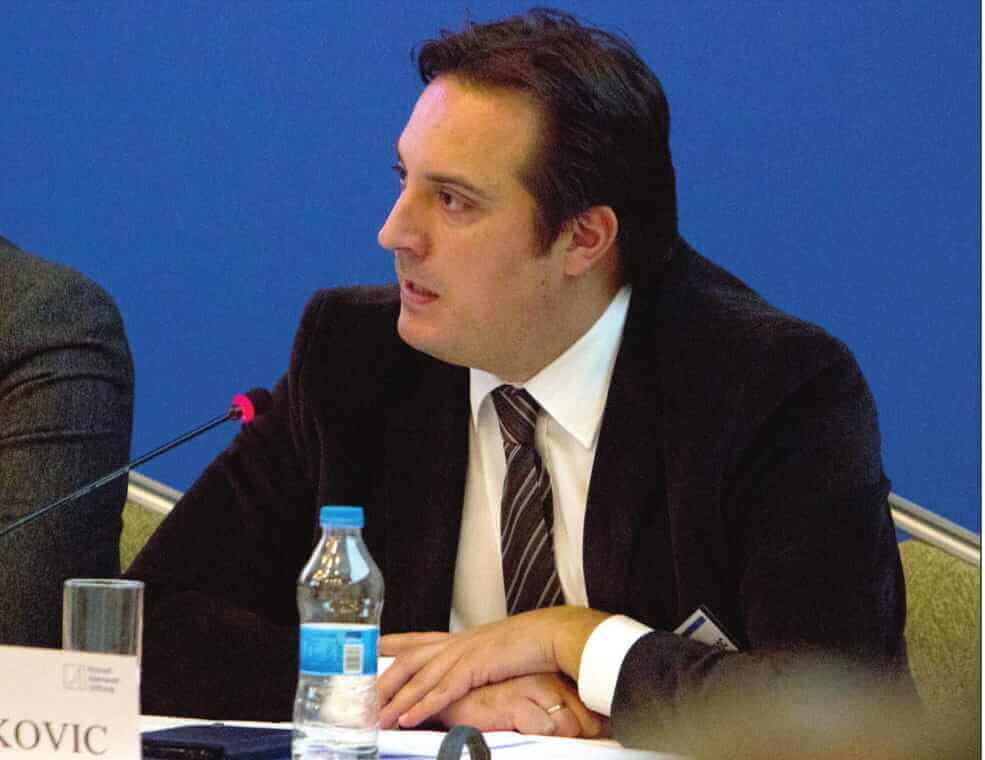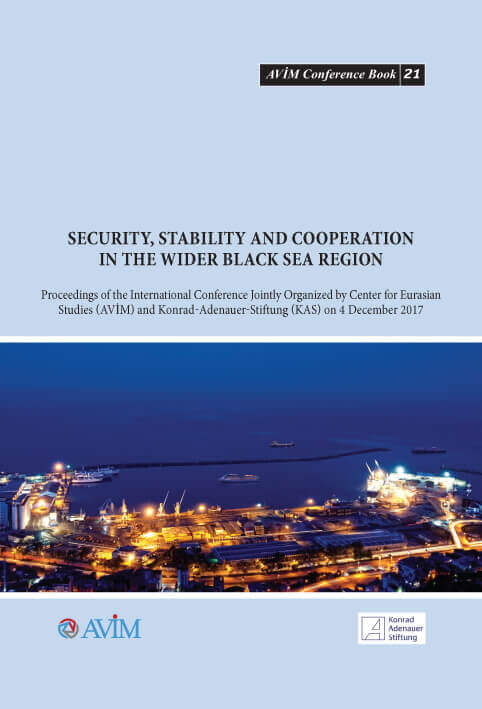
Images copyright of Centre for Eurasian Studies (AVIM), Ankara
When we talk in geographical terms, there is just one Balkans that is the Balkan Peninsula. However, when we talk in political terms, there is at least one more Balkans, which is the Western Balkans. Western Balkans is a region in no other sense than political, since it is impossible to imagine the Balkans without Bulgaria, Turkey, Romania or Greece. Western Balkans a political construct of the European Union. So, when we speak of the “Western Balkans” today, we are actually referring to the “Western Balkans Six,” i.e., countries (or societies, due to differences over Kosovo status) established following the dissolution of Yugoslavia “minus Slovenia, plus Albania,” to recall the conceptualization of the late Professor Predrag Simić. Both the European Union and its members within the all-encompassing context of the European integration process use this term, which is the one and only process of reference common to the entire region. Over the years, unavoidably, minds of members of research community have been framed in this way.
Now we, as Belgrade Fund for Political Excellence and Belgrade Security Forum, have tried to introduce, once again, the term “South East Europe” into mainstream discussions. However, our success was limited. Historians understand us. Those focusing on geopolitics understand, as well. But, policy planers and decision makers, less so. Policy planning, budgeting, implementation, monitoring and reporting is to such an extent tied to and dependent on European – EU and European Economic Area (Norway for instance is one of key bilateral donors although not a EU member) – funding. Thus a different approach, although justified, would be seen as impractical.
To put things into one definite perspective, let us look at Montenegro and Serbia, two countries currently going through accession negotiations with the EU. In these two countries, there is not a single policy, sectoral or cross-sectoral, implemented today outside of the framework of European integration (policy). Goals, benchmarks, indicators, are set, or agreed on with “the Europeans.” When there is a problem not covered by the EU – for instance, countering violent extremism – there is at least one country from the West willing to work with countries in the region in order to establish a coherent policy.
Nevertheless, it is intriguing to think in the context of one, wider Balkans-Black Sea region. Although the two – let’s call them sub regions – experience dynamics of their own, there are potential common issues or areas of cooperation. Such are, for instance, transfer of know-how from the EU member countries to the nonmember countries; projects aiming at infrastructural improvement; facilitating trade by removing access barriers; safeguarding joint cultural heritage; investor meetings, and so on. First precondition for this is the leadership of forward thinking and proactive national elites and second, a sense of belonging to a specific region: which again is gained if there is a positive track record.
However, since the Russian military intervention (or aggression, again due to differences in opinion and interpretation) in Ukraine in 2014, the Western Balkans has, together with the rest of Europe, been experiencing what many have dubbed “the grand return of geopolitics” (Walter Russell Mead’s essay in May/June 2014 Foreign Affairs issue is one notable example) taking place amidst the fallout following “the end of liberal order” (to recall Fareed Zakaria and Niall Ferguson’s book published in 2017 book and countless other articles and conferences). The so-called “revisionist powers” (the term United States officially use) among whom different authors include Russia, China and – sometimes, with little or no evidence and a lot of speculation – Turkey, have been reasserting themselves in the region of Western Balkans through a combination of economic and political initiatives; some very well thought and prepared, such as China-led Belt and Road Initiative and the 16+1 format facilitating cooperation between China and countries of Central and Eastern Europe, and some less so. What makes these countries “revision ist,” the reasoning goes, is either their open rejection of the international order established following the end of the Cold War, as in the case of Russia, or their general readiness to offer new formats to the Western Balkans. Taken together, their initiatives have come close to rivaling those of the EU in size and ambition.
Now let us look more closely at three actors competing for influence who fall outside of the “West”. First, in our interpretation, comes China; the only political actor “playing the long game” and arguably in possession of a “truly global strategy” of the three. What China has done, in Bruno Macaes’ words for the portal “The China World”, is that it “discover [ed.]) something (…) we thought was specific to Western civilization – the control and mastery of technology and of modern society.” Here is a very specific end that China meets in the Western Balkans, that is, connectivity, the importance of which the EU has finally grasped on in its latest strategic documents. As Branko Milanović wrote recently on his blog “Global Inequality”, geography, particularly the difficult terrain, is rarely seen as one of the impediments to Western Balkans’ development. Yet, it is there, with Dinaric Mountain massif stretching for hundreds of kilometers from Slovenia to Albania and Greece. With companies skilled in construction and favorable loans, China has been filling the gap left after the EU decided on its principal corridors, omitting several others that individual countries saw as equally important. One such example is so-called Corridor 11, a highway connecting Romania, Serbia and Montenegro, which have yet to draw interest from EU’s financial institutions. Serbia alone, for instance, by now has a portfolio of cooperation with China that exceeds 5 billion Euros. Here, geography works in favor of Western Balkans, as the allimportant corridors from Mediterranean ports under Chinese control (e.g., Piraeus) go through at least one of the countries. The problems with the Chinese investments will be similar to those “the West” faces and has difficulties in adapting to. Facts are that these are state-owned companies we are talking about, not private enterprises; that there is less, or no interest for transparency in Western terms; and no talk of reciprocity with regard to market access.
With increasing awareness in Germany and other EU members of this dynamics, it is safe to presume that some kind of accommodation and adjustments will take place. What is worrying, on the other hand, is region’s policy community lack of capacity to analyze and understand China’s policies. There are few experts, who, for example, master the Chinese language or specialized on the history, politics or economy of this country, despite a general increase in trade and mutual visits. Belgrade Faculty of Political Science has recently set out to establish a center on China. Hopefully others will follow the suit.
Next comes Russia. Now the question being asked so often is “what Russia wants” in the Balkans (and other places). In the Balkans, in order for Russia to keep exploiting the differences among countries, it looks for volatility, prolonged conflicts.
Russia, in general, discourages attempts that seek to resolve long-standing disputes. In 2018 alone, Moscow will face two important developments. First is the much-anticipated agreement between Skopje and Athens over the “name issue” that has been left unresolved for 27 years. The other issue is the so-called “all-encompassing normalization” of relations between Belgrade and Pristina, which would open the door for Kosovo’s membership in the United Nations, while enabling Serbia to get onto the “fast track” of enlargement with the perspective of becoming an EU member by 2025. If both of these issues are successfully resolved, space for Russia’s influence will diminish, leaving Bosnia and Herzegovina as one country where outside forces can build on differences between internal actors.
Numbers come into mind, as well. For Serbia, exports to and imports from Russia account 5% of its overall trade. However, out of this 5 percent, close to 90 is energy (natural gas and oil), and it is where Russia’s influence is the strongest, possessing the ability to disrupt energy supply on a whim. And lastly, Russia has become a capable “spoiler” or “disruptor” of the existing orders, one that has learned its lessons, and is today using variety of platforms to exert influence. When doing so, it acts in a sense no different to Western countries, just that its goal and agenda is different. Hopefully official Moscow will recognize, at one point, that more can be achieved through expanding actual cooperation and engagement, rather than playing the card of identity politics.
There is another factor contributing to Western Balkans’ (eventual) membership in the European Union. Serbia, Bosnia and Macedonia have gradually become workshops for German, Italian and Austrian companies. Reasons are easy to explain; low labor cost; heavy subsidies from local governments; access to markets of Russia and Turkey, through free trade agreements (in the case of Serbia), and favorable geographical position. In effect, in the words of Dušan Reljić, chief of Brussels office of the German think-tank SWP, “these countries are today part of the same production cycle which may start in the Balkans but goes ending up in Germany, Austria or Italy.”
This brings us to third external actor in our analysis, which is Turkey. I would argue that Turkey is today capable of projecting soft power, particularly in the Western Balkans in a way that has not been seen in decades. Let us take universities as one example. Young, most likely Bosniak or Albanian student by ethnicity, see programs being offered as a good opportunity, far superior to the ones at home. It has become ordinary to hear partners and acquaintances in Skopje, Tirana or Sarajevo commenting how they got their degree from Koç, Sabancı or Bilkent universities. Then, there are medical services. Patients from Serbia, since several years, have the opportunity to receive treatment in one of Turkey’s leading hospitals, i.e. Acıbadem. They return to Serbia being impressed by the health care services in Turkey. Turkish companies look to capitalize on major construction projects by competing for corridors planned throughout Western Balkans. And, there is the question of shared history and cultural heritage. There is interest for reconstruction of not only places of worship, but old urban settlements and historical monuments with Turkish agency TIKA taking the lead.
Fourth issue that needs to be discussed is that we, as Western Balkans societies, are now exporting brains and skills to richer countries, not only EU member countries. If one adds negative demographics, the overall picture becomes really alarming: Serbia alone seems to be losing between 30 and 40 thousand people per year due to permanent or temporal emigration. Actual population figures of Macedonia and Albania are speculated to be one third of the official figures. People, not only the youngsters, are leaving for a variety of reasons, with wages being just one of them. They also leave because of nationalism, xenophobia, narrow-mindedness, cronyism and clientelism of every sort.
Western Balkans is still pretty much European Unions’ game. However, in the view of many researchers, including myself, the EU needs to revisit and amend its functionalist, technocratic approach. It should start thinking of itself and the Western Balkans as a single security space, something that research community active around the Belgrade Security Forum initiative has been advocating for a long time. To take back the initiative from competing powers, again as suggested by Dusan Reljić, the European Union should enable access for the Western Balkan countries to European Structural Funds before, not after they become members. We must not forget that most of what comes from the EU through its financial instruments (EIB, EBRD, WBIF) are loans.
There are, however, two issues with respect to the above mentioned approach. First, it is wrong to group Russia, China and Turkey together. Not only that these three countries are major regional or global powers, but they also come with diverging interests and approaches. For instance, Turkey is a NATO member, and despite its ongoing disagreements with the West, it has been repeatedly calling for several Western Balkans countries to join the Alliance, thus playing a constructive, stabilizing role.
What the above-mentioned initiatives do not do, however, is to provide a framework for societal change that are desperately needed in a region left impoverished and underdeveloped. A really exciting development would be one of the three powers’ decisions to offer some format of association similar to European integration and support that decision with proper funding and programs and – why not – with legislation, similar to what the EU has been doing with its acquis. For the time being, such a possibility seems remote and depends on when and whether will “introspective period” the EU has been going through end.
However this “window” is narrowing down every year, as countries are drown even closer in the process of European integration. As Serbia continues its path to the European Union, in 35 negotiating chapters such human and material capital has been invested, that it has become very difficult to envisage another scenario or “plan B” despite the ongoing issues. Rather, risk persists as long as the process continues to be extended, postponed; with an obvious example being Turkey’s protracted membership bid. Funnily enough, the same European Union that keeps Western Balkans at bay with an increasing list of demands, remains its best option for societal transformation and development.
This paper was first published in the book “Security, Stability and Cooperation in the Wider Black Sea region”, based on the proceedings of the international conference jointly organised by Center for Eurasian Studies (AVİM) and Konrad Adenauer-Stiftung (KAS) in Ankara, on 4 December 2017.
“Security, Stability and Cooperation in the Wider Black Sea Region,” which was edited by AVİM Senior Analyst Dr. Turgut Kerem Tuncel, opens up with the forewords of Teimuraz Antelava (BSEC Legal Advisor), Sven-Joachim Irmer (Head of the KAS office Turkey), and Ambassador (R) Alev Kılıç (AVİM Director). These are followed by the introduction penned by Dr. Turgut Kerem Tuncel and twelve articles written by researchers and academics from the Wider Black Sea region countries who participated in the conference on 4 December 2017.













